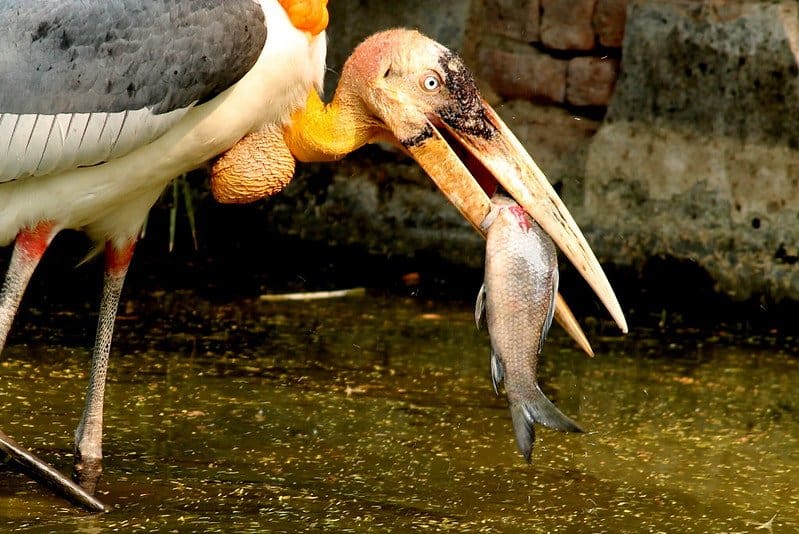Flipping the bird
In India, populations of an endangered, so-ugly-it’s-beautiful stork have rebounded thanks to a community-driven conservation effort shepherded by “an army” of local women.
It started with Purnima Devi Barman, a wildlife biologist who has worked to shift negative attitudes about the garbage-picking birds in her home state of Assam. Knowing that the storks are viewed by some as a bad omen, she began holding traditional “baby showers” at their egg-filled nests, inviting local women to participate. The events included prayers and meals, as well as lessons from Barman about the birds’ ecological importance. Barman appealed to the attendees’ maternal instincts. Soon, dozens of women were attending the events.

Barman’s empathy-building approach has been a success. To date, about 10,000 women have taken part in the baby showers, and some 400 participate daily in organized conservation efforts. Now, the number of storks in Assam has tripled from 400 to 1,200, and the number of egg-bearing nests in many communities has increased by a factor of ten. Perhaps most impressive, in some villages the bird’s image has been rehabilitated from reviled pest to symbol of community pride. “[Barman] not only brought the species back from the brink, but she empowered women in a way that they probably hadn’t been empowered before,” said one participant.
From the ashes
A decade of war in northern Uganda left the village of Okere Mom-Kok destroyed. Now, it is being reborn as a town powered by solar energy and social enterprises.
The town’s rejuvenation began with an investment from Ojok Okello, a local resident who had fled when his father was killed and has since returned after working at NGOs abroad. He invested about $50,000 of his own money to start up a school, a community bank and a health clinic, as well as infrastructure for solar power and clean water. Now, the town is generating its own revenue. Students pay their school fees in maize and firewood, and shea butter — the smell of which now permeates Okere — is produced from the town’s shea trees. An investment club provides loans for locals to start their own enterprises.
Weighed down by negative news?
Our smart, bright, weekly newsletter is the uplift you’ve been looking for.“There’s a lot of improvement,” one resident told the Guardian. “We have more buildings now and even the people are increasing.” For Okello’s part, he believes in the power of local control in revitalization efforts. “I don’t want this project to be at the mercy of some white people,” he said. “I want us to be responsible for shaping the destiny and the future of the project.”
An education in prevention
At Jesuit High School in Sacramento, days start with nose swabs followed by ping pong while the students await the results of their rapid Covid-19 tests. It’s just one component of a broad and rigorous approach to preventing outbreaks that have allowed the school of 800 boys to operate almost Covid-free for two months.
The Los Angeles Times looks at this and other examples of schools in the capital area defying the odds to keep their student bodies protected, even while open for in-person learning. The common threads are thorough testing, strict social distancing and a sense of social trust in which everyone, from students to parents to teachers, agrees to do the right thing.
At St. Mary’s parochial school just outside the city, the playground is divided so kids can play together in small groups, and an intercom message has replaced morning assembly. But perhaps most powerfully, there’s a tacit and pervasive understanding that prevention depends on everyone doing the right thing. “No one testing positive wants to be forced to admit taking a secret vacation and being ‘the reason the school closed,’” said the principal.










